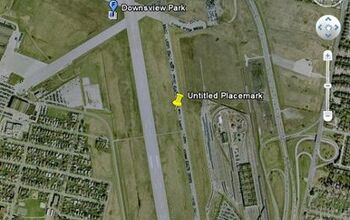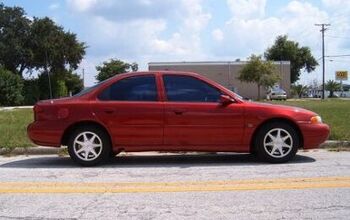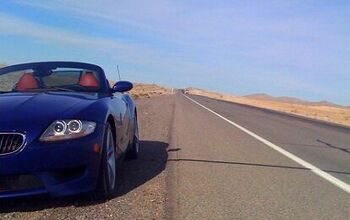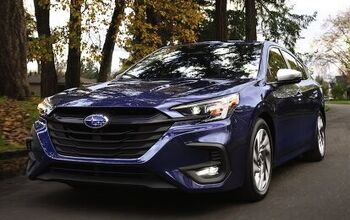Ask The Best And Brightest: Where Are You In The Driverless Car Debate?
When news hit late last week that one of Google’s driverless cars had been involved in a minor fender-bender, the anti-autonomous driver argument made itself. “This is precisely why we’re worried about self-driving cars,” howled Jalopnik.”Google’s self-driving car seems like the ultimate distracted driving machine.” But on the very same day, Google claimed that
One of our goals is to prevent fender-benders like this one, which occurred while a person was manually driving the car [emphasis added]
Before you know it, the other side of the debate, as epitomized by Popular Science flipped the argument, insisting that
this incident is yet another example — as if we need one — of the human capacity for error. Hopefully, when cars do take over, they’ll be able to prevent these types of incidents on their own.
So yeah, there’s a pretty wide range of opinions on the issue. And with Nevada’s legalization of driverless cars, it’s only a matter of time before something happens that busts the debate wide open again. So, how do you feel about our new robot overlords? I, for one, could live with the technology for freeway/expressway use… but not without drawing some kind of clear lines around legal liability. Off-freeway? No thanks. Too few benefits from packing traffic tighter and too many other variables in traffic. What say you?
More by Edward Niedermeyer

































Comments
Join the conversation
I often drive with cruise control when on the highway, and I wish I could retrofit adaptive cruise control to my daily driver for times when highway traffic is too heavy and/or changing speed to much to use cruise. Would I like a computer to take over the steering as well? Not really. I think this would be appealing to a lot of people though. What I'd really like to see are Star Trek style transporters, to get all the non-enthusiasts off the road and leave it for those of us that enjoy driving. :)
I think automated cars would make a lot of sense in certain situations. First, they would have to be networked with each other; second, they would have to be networked with a road information system and third, they would have to have their own lane on the highway. It seems to me that the best use of these, as some others havae pointed out, would be the creation of digitally-connected "trains" of vehicles moving together at high speed and closely spaced in a dedicated left lane of a freeway which had no exits. The occupant would program the car for a certain destination and then the system would break that car out of the train as the exit for that destination came near. At that point, the driver would revert to manual control. Likewise, a personal wishing the join the "train" would manually approach the train from the side and then let the system take over. The system would slow down the cars in the train behind the approaching car to make room for it to move to the left and join the train. Similarly, if a car left the train, the system would accelerate the cars behind it to close up the gap to the specified (small) distance. It seems to me that a system like this would make high-speed travel safe and more efficient (from the drafting effect of closely spaced cars). I do not think driverless cars in other situations are anywhere near ready for use. The situations are too complex and too subject to misinterpretation by sensors. It's hard to imagine they would provide material increases in safety, anywhere near commensurate with the cost. And for all you public transit freaks, the reason this is better than the bus or the train is that you don't have to go to a "station" to join the "train" or leave it.
Guys saying this will never happen, or require special lanes: the google car has been driving itself around ACCIDENT FREE, with ZERO COOPORATION, on REGULAR ROADS for a couple years now. That's amazing for an early prototype! To get some of the efficiency benefits though and further advantages might require networking, or not permitting regular cars on certain roads, but this could be simpler than you think. It might be as simple as each car having a transponder broadcasting where it intends to go and how it intends to get there. Two or more cars going the same way for a while can find each other using this and form a train. In cities, receivers on the road will hear where everyone wants to go and when and then offer suggestions to those cars on the best way to get there. The only thing the manual car wouldn't be able to do is form the trains or negotiate electronically controlled intersections.
I am surprised at the apparent overwhelming support for autonomous vehicles on this forum, of all places. People are really willing to surrender ALL control of their vehicles to a computer, have all of those automated vehicles networked together as well as back to a master controller, and have them follow within inches at 80+ MPH? What happens the first time some 10 year old hacker gets into the traffic network computer and tells one car in the conga line to nail the brakes? Or someone throws a set of stop spikes across the road for laughs, or a deer runs into the highway, or one of the cars suffers a major mechanical failure... the possibilities are endless. I can't believe the idea of having an automated vehicle lane from which a car would automatically exit to the "manual" freeway, then hand over manual control to the driver would work either. Drivers pay little enough attention to the task at hand now, they're guaranteed to zone out during their hour-long automated ride. What happens when said "driver" is asleep when the auto-car pulls into "manual" traffic? Not to mention the problem of drivers already in the manual lanes now needing to anticipate unexpected lane changes near every exit, and the fact that, even if you could get this to work safely, the increased volume of cars hitting popular off-ramps would overwhelm their capacity and back up the freeway, including the automated lane. The Google cars, while impressive, have not logged hundreds of thousands of miles of autonomous operation. As of October 2010 they had done about 1,000 miles with no human intervention, all the rest with some human input. They have software engineers riding along monitoring everything, and a trained operator at the wheel who you can be sure has a vested interest in paying attention at all times and making sure the car doesn't get in trouble. A New York Times account indicated that the human stepped in when a bicyclist ran a red light, and when a car stopped to back into a parking space. If the car can't be trusted to deal with those relatively routine situations on its own, how can it handle something more dramatic, particularly in an environment where hundreds of cars are running at high speed in close proximity? I'll retain human control, thanks.